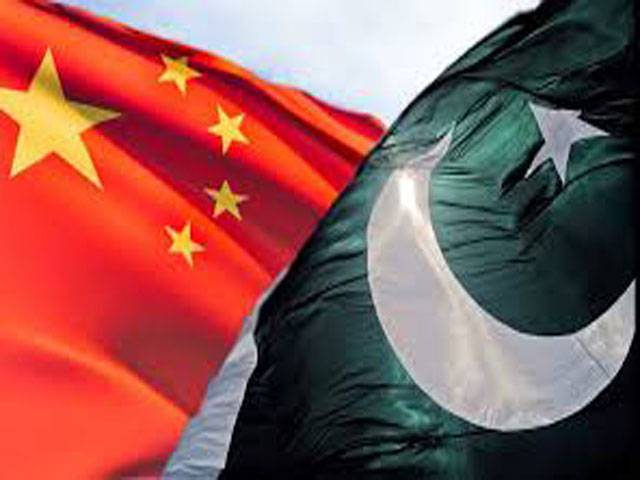ISLAMABAD - Pakistan and China’s proximity is not being received well in India as it attempts to isolate Islamabad.
Officials at the foreign ministry, who remain in contact with India, told The Nation that India was worried about Pak-China closeness, which it saw as a threat.
“Although our policy is very clear that we will not conspire against any country. Our relations with China are bilateral and we have a history of friendship. We are not targeting any country but Indians do feel the heat. They think we are united against them,” a senior official at the foreign ministry said.
On the China-Pakistan Economic Corridor and the Belt-Road Initiative, New Delhi claims, the Chinese investment has increasingly become about providing funds to the Pakistan military. India is also worried about China’s policy on Kashmir, which is almost identical to Pakistan’s position. China has also assured Pakistan it will play its role to defuse tension between Pakistan and Afghanistan.
The foreign ministry official said India might influence other regional countries to counter Pak-China partnership.
Meanwhile, on Monday a senior German diplomat underscored the need for a “Regional Security Architecture” for Asia, which could serve as a common security system and a forum for dialogue on challenges confronting the region.
“Regional security architecture is desperately needed. There are different formats, but not all of them are working well as last Heart of Asia meeting showed,” said acting German Ambassador Dr Jens Jokisch.
Speaking at the inaugural session of the two-day national conference on “Regional Security and Foreign Policy in South, Central and West Asia” - jointly organised by Islamabad-based think tank Strategic Vision Institute and German Foundation Konrad Adenauer Stiftung.
The conference, which was attended by policy makers, academia, media representatives and students of international affairs, aimed at analysing the issues affecting peace and security of South and Central Asia and the future trends that are likely to shape the security environment of the region.
Dr Jokisch cited the German example of working for development of common security systems in Europe in 1970s as a confidence-building measure not only between the governments, but also between the people.
He supported Pakistan’s outreach to Iran and Afghanistan after recent border incidents and observed that the moves helped reduce tensions.
The German diplomat said that large projects in the region could only succeed under secure and stable political environment.
This, Dr Jokisch said, re-emphasised the need for a regional security structure. He called for giving up Cold War-era “zero-sum” logic in inter-state relations.
Dr Jokisch said this could happen through confidence-building measures and would lead to a win-win situation. He also stressed on the need for continued dialogue and the role of civil society for promoting long-term understanding between countries.
Strategic Vision Institute President Dr Zafar Iqbal Cheema said that Pakistan’s regional environment had assumed special significance particularly in view of convergence of interests of its three neighbours viz India, Iran and Afghanistan as shown by their diplomatic and security exchanges.
Therefore, he said, the challenge before Pakistan was how to strike a balance between its commitment to Saudi Arabia and relations with Iran; address Afghanistan’s concerns; and meaningfully engage India.
Centre for International Strategic Studies Executive Director Ambassador Sarwar Naqvi echoed the German diplomat and said “zero-sum” concept was outdated in today’s modern world. He gave the example of China, which was having friendly relations with Pakistan, but is at the same time maintaining robust trade ties with India.
Russia, a traditional ally of India, Naqvi said, meanwhile, has developed a good relationship with Pakistan. US, he further noted, was considered as a Pakistan friend, but went on to develop strategic partnership with India and was simultaneously keeping good and productive relations with Pakistan.
Dr Zafar Nawaz Jaspal, from the Quaid-i-Azam University, in his presentation noted that the United States and its allies were competing with China and Russia for influence in the region, which was resulting in reaffirmation and reforming of strategic partnerships in Asia.
Ghulam Mujadid, from the Air University, said traditional security issues were dominating the security agenda in the region, although non-traditional security concerns were increasingly becoming more pronounced. He was of the opinion that lack of integration in the region was the main factor influencing regional security dynamics.
Dr Mujeeb Afzal, from the QAU, pointed out that trans-border religious movements and ethnic issues were the major challenges faced by Central Asian States. He expressed his worry that economic disparity and competition for natural resources could lead to disputes among the countries in Central Asia.
Dr Shabbir Ahmed Khan, from the University of Peshawar, said that integration in Central Asia was being stymied by divergent and competing interests of major global powers. In his view, the Central Asian States felt more comfortable working with Russia and China, who could also contribute to their security as well.
The University of Peshawar’s Dr Syed Hussain Shaheed said the US, China and Russia could potentially create a security and political paradigm in South Asia that could promote sustainable peace and improve prospects of prosperity. However, with regards to Pakistan-India relations, he recommended that both countries should have a conventional military balance with a formal acknowledgement of their nuclear status and holding “genuine and fruitful” dialogue on Kashmir was essential.
The QAU’s Dr Qandil Abbas, discussed the rivalry between Saudi Arabia and Iran and its influence on the Gulf region and beyond. He said that Saudi Arabia and Iran were continuously trying to shift the balance of Persian Gulf’s regional politics in their own favour.
Dr Talat Farooq, senior research fellow at the SVI, held that, while regional rivalries were feeding ongoing conflicts, it were the diverse interests of the external powers that were impacting foreign policy choices in the region.






